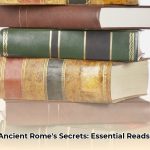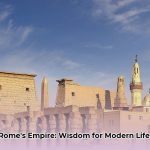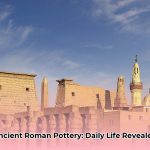Ever wonder what fueled Isaac Newton’s groundbreaking discoveries? Beyond his exceptional intellect, his personal library served as a vital source of inspiration and knowledge. This article delves into the fascinating world of Newton’s books, revealing a complex individual whose intellectual pursuits spanned science, religion, and even alchemy. Explore the surprising contents of his collection and gain a new perspective on the man who revolutionized our understanding of the universe. For similar insights into genius minds, see Leonardo’s to-do lists.
The Personal Library of Isaac Newton: A Gateway to the Scientific Revolution and Intellectual History
Imagine stepping into Isaac Newton’s personal library—a journey back to the 17th century and into the mind of a scientific giant. More than just a repository of books, it was a vibrant reflection of his multifaceted intellectual life: his relentless scientific explorations, his profound spiritual beliefs, and his intense engagement with complex ideas. Newton’s library offers a unique window into the intellectual currents of his time, revealing the influences that shaped his revolutionary discoveries and ultimately, the world we inhabit today.
Beyond the Apple: Unveiling Newton’s Alchemical Pursuits
While popular imagination often associates Newton with a falling apple and the sudden revelation of gravity, his intellectual landscape was far more intricate. His personal library contained a substantial collection of books on alchemy—the ancient practice of transmuting base metals into gold and seeking the elixir of life. What role did alchemy play in Newton’s scientific development? Was it a mere intellectual curiosity, a deviation from his “real” scientific work, or did these esoteric studies secretly inform his scientific breakthroughs?
The sheer volume of alchemical texts in his possession suggests a deep and sustained engagement. This challenges the conventional image of Newton as a purely rational scientist, revealing a more nuanced figure who explored diverse avenues of knowledge. Scholars continue to debate the precise influence of alchemy on Newton’s scientific thought, with some arguing that its focus on transformation and hidden forces resonated with his ideas about the natural world. The alchemical texts hint at the unconventional avenues he explored, such as the transmutation of elements and the search for universal principles.
Faith, Science, and the Cosmos: Harmonizing Religion and Natural Philosophy
Newton was not only a scientific innovator but also a deeply religious man. His faith was intertwined with his scientific endeavors, shaping his worldview and influencing his approach to understanding the cosmos. His library reflected this duality, featuring an extensive collection of theological works alongside scientific treatises. Newton’s belief in a divinely ordered universe, governed by rational laws, likely fueled his quest to uncover the underlying principles of nature.
To fully grasp the complexity of Newton’s genius, it is crucial to consider the interplay between his faith and his science. His library provides valuable insights into this relationship, illuminating an often-overlooked dimension of his intellectual life. Exploring his selection of theological texts offers a window into the intellectual and spiritual context surrounding his scientific pursuits. Did the presence of theological works highlight a search for harmonizing faith and science?
A Catalog of Curiosity: Exploring the Breadth of Newton’s Intellectual Interests
The sheer range of subjects covered in Newton’s library is astonishing. Beyond science and religion, he immersed himself in mathematics, astronomy, philosophy, history, and classical literature. This eclectic mix underscores the interconnectedness of knowledge in his era and demonstrates Newton’s insatiable intellectual curiosity. His collection was a carefully curated reflection of his intellectual journey, revealing his pursuit of understanding the world from the smallest particles to the vast expanse of the cosmos.
Here’s a glimpse into the types of books found within Newton’s collection:
| Category | Examples | Significance |
|---|---|---|
| Mathematics | Euclid’s Elements, works by Wallis | Fundamental for his mathematical innovations, including the development of calculus and his contributions to geometry. |
| Astronomy | Kepler’s works, astronomical tables | Inspired his work on optics, celestial mechanics, and the formulation of his law of universal gravitation. |
| Physics & Mechanics | Works by Galileo, Descartes | Influenced his development of the laws of motion, his understanding of forces, and his formulation of the concept of inertia. |
| Alchemy & Chemistry | Various alchemical texts | Potentially influenced his scientific methodology, his concepts of transformation, and his understanding of the nature of matter. |
| Theology & Philosophy | Religious treatises, philosophical works | Provided a framework for his worldview, his interpretations of the natural world, and his understanding of the relationship between God and the universe. Offered insights into the prevailing intellectual discourses. |
Unlocking the Secrets: Ongoing Research and Evolving Interpretations
Newton’s library is not a static entity but a subject of ongoing scholarly investigation. Researchers continue to meticulously examine the contents of his collection, uncovering new insights that reshape our understanding of his scientific contributions and intellectual development. The digitization of many of Newton’s books has made them more accessible to researchers and the public, facilitating further exploration of his intellectual landscape. This allows us to delve deeper into the vast intellectual landscape of one of history’s most brilliant minds, exploring the evolution of his thinking and the influences that shaped him. How does this ongoing research change what we know about Newton?
The Bigger Picture: Context, Collaboration, and the Scientific Community
Newton’s library existed within a broader intellectual and social environment. His interactions with other scientists, his participation in learned societies such as the Royal Society, and the political and religious climate of his time all influenced his work. To fully appreciate the significance of his library, we must consider its place within this wider context. It was a part of a vibrant intellectual ecosystem, not an isolated phenomenon. His writings, preserved within his library, reveal these connections, showcasing how his work was influenced by, and in turn influenced, others. How did Newton’s interactions with the scientific community affect his research?
A Legacy That Endures: Newton’s Library and its Lasting Impact
Newton’s scientific contributions revolutionized our understanding of the universe and continue to shape our world today. His library offers a unique window into the mind of a scientific genius, providing insights into his intellectual journey, his working methods, and the interplay of science, faith, and the pursuit of knowledge. Exploring Newton’s personal library allows us to glimpse the fascinating story of one of history’s most influential figures, a story that continues to resonate with scientists, historians, and anyone interested in the power of human intellect. Examining this collection gives us a more intimate and comprehensive understanding of the man who revolutionized our understanding of the universe. Each book within those shelves whispers tales of his triumphs, struggles, and his ultimate contribution to humanity’s collective understanding of the universe. What lasting legacy does this library provide for us?
How did Isaac Newton’s alchemical studies influence his scientific breakthroughs and philosophical thought?
Isaac Newton’s legacy extends beyond physics and mathematics. He was deeply involved in alchemy, a pursuit that profoundly influenced his scientific methodology and philosophical outlook. This section explores the impact of alchemy on his groundbreaking scientific achievements and intellectual development.
The Alchemist’s Laboratory: A Crucible of Ideas and Empirical Observation
Newton’s alchemical writings, totaling over a million words, reveal a dedication that went far beyond mere curiosity. He actively conducted experiments, meticulously recording his observations and striving to understand the fundamental building blocks of matter. This hands-on approach, essential to his alchemical investigations, directly informed his scientific method. His precise experimental techniques, meticulous record-keeping, and unwavering dedication to observation, hallmarks of his physics, were honed in his alchemical laboratory. Does this suggest that alchemy was more than just a hobby for Newton?
Matter’s Mysteries: Connecting Alchemy and Physics through Transformation
Newton’s alchemical work focused on understanding the nature of matter and its transformations. Alchemists believed in a fundamental, mutable substance that could be transformed through various processes. This concept resonated with Newton’s developing ideas about the particulate nature of matter and the forces that govern its interactions. Was his alchemical influence connected to his laws of motion?
The shared focus on the underlying mechanisms of change and the transformation of materials deeply influenced his approach to physical phenomena. The idea of transmutation influenced his views on physical change.
Light and Color: A Refined Perspective on Scientific Inquiry
Newton’s revolutionary work on optics, including his prism experiments demonstrating the composition of white light, shows the impact of his alchemical training. Alchemists paid close attention to color changes during chemical reactions, cultivating a meticulous approach to visual analysis. His detailed studies of light and color, with their meticulous observations and measurements, reveal a refined sense of experimental observation that owes a debt to his alchemical roots. How much did alchemy hone his scientific inquiry regarding observation?
The Secret Language of Science: Interpreting Newton’s Work and Uncovering Meanings
Understanding Newton’s alchemy is difficult because of its cryptic nature. He wrote in a coded language, a common practice among alchemists to protect their work. The symbolism and cryptic language used in his alchemical manuscripts present a puzzle for historians. Decoding these enigmatic texts remains a significant undertaking that will provide insights into his thought processes. Why did Newton use coded language, and what does this reveal?
A Legacy of Synthesis and Experimental Rigor
Newton’s alchemical work was interwoven with his scientific endeavors, informing his methodology, experimental approach, and theoretical frameworks. This challenges the simplistic narrative of a clear divide between “science” and “magic” during the Scientific Revolution. The reality was far more nuanced. His secret alchemy was a foundational element, a cornerstone in the construction of his scientific genius. Did Newton synthesize alchemy with his scientific endeavors?
Key Takeaways:
- Newton’s extensive alchemical writings demonstrate his dedication to experimental science.
- His alchemical pursuits fostered a rigorous experimental approach, impacting his scientific methodology.
- The alchemists’ focus on the fundamental nature of matter influenced Newton’s own understanding.
- His meticulous observations in alchemy refined his approach to experimental physics, particularly optics.
- The secrecy surrounding alchemy and Newton’s own guarded approach contextualized the era’s scientific landscape.
- How did Isaac Newton’s alchemical studies influence his scientific breakthroughs? The answer lies in a synthesis of experimental rigor, a shared focus on the fundamental nature of matter, and a uniquely developed approach to observation and experimentation.
Newton’s Contemporaries’ Views on Alchemy and its Influence on his Scientific Work: Historical Context
Beyond Newton’s personal involvement, understanding how his contemporaries viewed his alchemical pursuits sheds light on the intellectual landscape of the 17th century. Exploring these perspectives provides a valuable historical context for interpreting Newton’s work.
Key Takeaways:
- Newton’s deep engagement with alchemy wasn’t a sideline but a core element of his intellectual life.
- His alchemical pursuits, though often overlooked, significantly shaped his scientific methods and worldview.
- Newton’s Contemporaries’ Views on Alchemy and its Influence on his Scientific Work reveal a complex interplay between seemingly disparate fields.
- Separating Newton’s scientific achievements from his alchemical investigations provides an incomplete and potentially inaccurate understanding of his genius.
- The prevailing dichotomy between “rational science” and “irrational alchemy” is a misleading oversimplification.
The Alchemist’s Laboratory: A Look Inside Newton’s World and Early Modern Science
Imagine stepping into Isaac Newton’s study. Books overflow from shelves, manuscripts spill from desks. But amidst the scientific texts, you find a hidden world—a trove of alchemical writings, cryptic symbols, and experimental notes. This wasn’t just a “hobby,” as some have suggested. Alchemy was central to Newton’s intellectual framework. His contemporaries knew this. How did they view this significant aspect of his pursuits? What can we learn from a historical context?
Alchemy’s Methodical Influence: More Than Just Mysticism
Newton’s alchemical work wasn’t simply about searching for the Philosopher’s Stone. It was a rigorous, experimental process. He meticulously documented his experiments, carefully observing and recording results. This echoes his scientific methodology – observation, experimentation, and mathematical analysis. Did his contemporaries recognize this methodological connection? Evidence suggests they did, though opinions varied on the philosophical implications. Did contemporaries see the methodological connections between alchemy and science?
A Network of Ideas: Newton’s Contemporaries and the Alchemical Exchange in the Republic of Letters
Newton didn’t work in a vacuum. He corresponded with other leading thinkers of his time, many of whom shared a similar interest in alchemy. These exchanges formed a vital network of ideas, where alchemical theories mingled with scientific debates. Newton’s Contemporaries’ Views on Alchemy and its Influence on his Scientific Work are vital to understanding the broader intellectual climate of the era. Their perspectives, whether supportive or critical, offer an enriching context for understanding Newton’s own engagement with alchemy. How did these intellectual exchanges shape early modern science?
The Debate Continues: Alchemy’s Impact on Newton’s Scientific Breakthroughs and Ongoing Scholarly Discussions
The relationship between Newton’s alchemy and his scientific breakthroughs remains a rich area of scholarly investigation. Did his alchemical beliefs directly influence his laws of motion or his theories on optics? Some scholars believe there’s a clear link, while others suggest a more subtle, indirect influence. Consider the concept of “attraction,” central to Newton’s gravitational theory. Its roots can be traced to alchemical ideas of forces and affinities. This is not an open-and-shut case. We must explore the nuances. What is the current state of scholarly debate regarding Newton’s alchemy?
The Legacy of Alchemy: Reshaping the Narrative of the Scientific Revolution and the History of Ideas
Newton’s alchemical pursuits challenge the traditional narrative of the Scientific Revolution. The rigid separation of “science” and “alchemy” is a false dichotomy. By reintegrating his alchemical work into the broader picture, we gain a far richer understanding of his intellectual journey. Furthermore, we can grasp the complex relationship between seemingly disparate disciplines. The ongoing scholarly debate around Newton’s Contemporaries’ Views on Alchemy and its Influence on his Scientific Work underscores the need for a more nuanced and inclusive interpretation of the history of science. How can Newton’s alchemy reshape the narrative of the Scientific Revolution?
Religious Beliefs and their Impact on Newton’s Scientific Discoveries: Contextualizing the History of Religion
Newton’s religious beliefs were deeply intertwined with his scientific pursuits, shaping his worldview and influencing his approach to understanding the natural world. Examining his theological writings and their relationship to his scientific work provides valuable insights into his complex intellectual landscape.
Key Takeaways:
- Newton’s private theological writings reveal a deeply held Arian Christianity, significantly diverging from the official Anglican doctrine.
- His rigorous, empirical approach to biblical study mirrored his scientific methodology. He meticulously examined original texts.
- The interplay between his scientific and theological pursuits remains a subject of ongoing scholarly debate. Did one inform the other?
- Newton’s “Nicodemism,” or the concealment of his beliefs, raises questions about his motivations and strategies.
- Understanding Newton’s religious views enriches our understanding of his genius and his place in history.
The Library as a Reflection of Faith and the History of Theology
Let’s step into Isaac Newton’s world. Imagine his personal library. Books, papers, manuscripts, all carefully arranged. It wasn’t just a collection; it was a universe reflecting his mind. His religious beliefs profoundly shaped his scientific pursuits, and his library served as a tangible testament to this intricate interplay. Consider this: What if the very structure of the universe—as he saw it—echoed his understanding of God? How does his library reflect faith and the history of theology?
Think of the meticulous order, the classifications, the annotations. It’s a microcosm of his approach to both science and religion. He applied the same level of rigorous analysis to scripture as he did to celestial mechanics. Was this just coincidence, or a deeper reflection of a unified worldview? Did his approach to the library reveal a unified worldview?
Arianism and the Scientific Method: Religious Dissent and Intellectual History
Newton’s private theological writings reveal a significant departure from mainstream Anglicanism. He was an Arian, believing in a subordinate view of Christ’s relationship to God. This wasn’t a casual belief; it was a deeply held conviction, shaping his interpretation of scripture and, potentially, his scientific outlook. This raises a fascinating question: How did his Arianism contribute to his scientific discoveries? Did his belief in a divinely ordered, rational universe propel his search for scientific laws? How did Arianism influence his scientific discoveries?
His library, filled with ancient texts and theological treatises, offers a window into this intellectual journey. He wasn’t simply gathering knowledge; he was constructing a framework for understanding the world, both physical and spiritual. This wasn’t just a library; it was a laboratory of faith. What insights are provided by his library and texts?
The Enigma of Nicodemism: Secrecy and Religious Beliefs
Newton wasn’t always open about his theological views. He practiced a form of “Nicodemism,” concealing his beliefs to avoid potential conflict. Why this secrecy? What was he afraid of losing? His public image was one of conformity, while his private papers contained a radical, heterodox vision. This concealment only adds to the mystery surrounding his genius. The library, therefore, becomes a repository of both public persona and private truth. We are left to carefully analyze the subtle clues among the dusty tomes. What motives caused his Nicodemism or secrecy?
His theological research shows a deep engagement with biblical texts, historical accounts, and early Church writings. He subjected them to meticulous scrutiny, searching for hidden meanings and patterns. This painstaking attention to detail was evident in his scientific pursuits as well. His method was the same, applied across disciplines: observation, analysis, and interpretation. Did his methods stay the same across disciplines?
The Lasting Legacy: Unlocking Newton’s Mind and Understanding Impact
Newton’s impact on science is undeniable. But how do we fully comprehend his genius without understanding his religious beliefs? His library, a physical representation of his mind, reveals the profound interconnection between faith and reason in his life’s work. It invites us not just to admire his scientific achievements but to unravel the complex tapestry of his intellectual landscape. It whispers to us, urging deeper inquiry. How can we truly understand the man behind the myth without considering this aspect? What does his library urge us to inquire about?
The study of Newton’s theological writings and their relationship to his scientific work continues. The debate on the extent and manner of his Nicodemism adds another layer. His library, a physical manifestation of his complex mind, serves as an incredibly valuable primary source for these ongoing investigations. How does his library serve as a key source of primary source?










